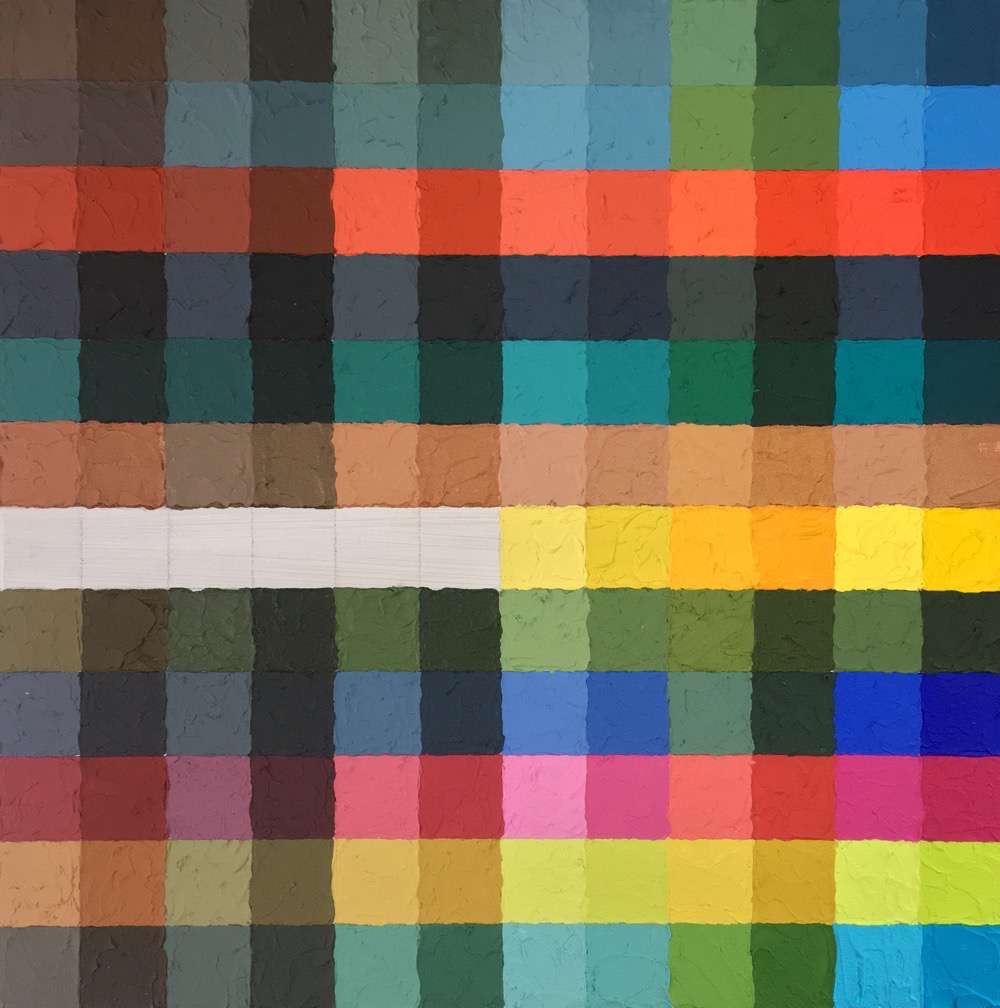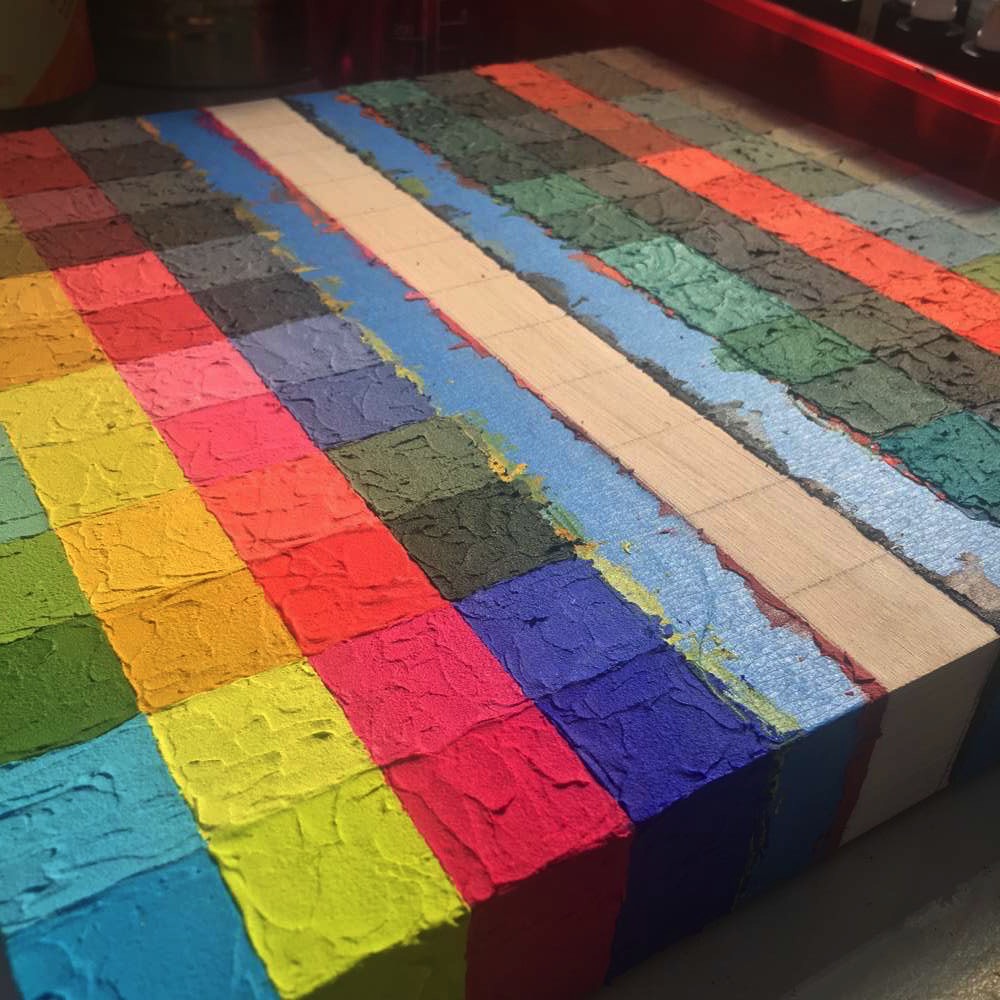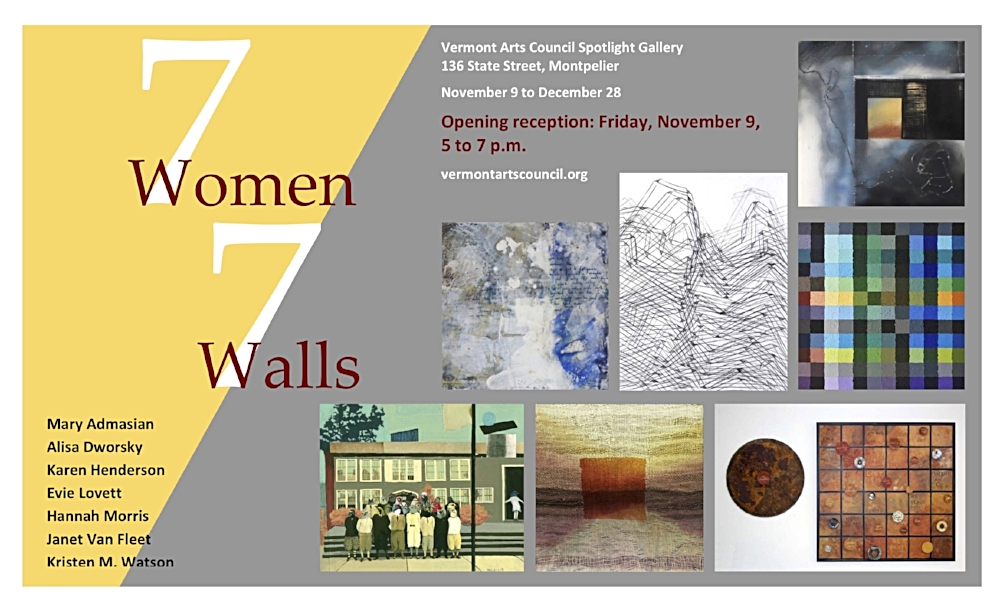fractionate series | paintings
frac·tion·ate | \ˈfrak-shə-ˌnāt transitive verb: to divide or break up
Pixels make up nearly everything we look at now. Every image, print or digital, is made up of millions of them. Magnifying the images makes them pixelate, and our view of the big picture becomes microscopic, distorted. We are unable to clearly see the whole.
This serves as a compelling metaphor for human behavior with regard to how we navigate, and are influenced by, news and Internet. It’s being called the filter bubble, a phenomenon that describes the algorithms Google and other big data gatherers use to show you results, news, websites, and ads that it thinks you want to see, thereby eliminating alternative points of view or other possibilities. My Web is not your Web and vice versa.
The filter bubble describes why many people are increasingly thinking in binary terms on some subjects and seem unable to have nuanced conversations. We are surprised and sometimes disturbed when we encounter a viewpoint that differs greatly from our own. The cascading effect of these myopic thought patterns have fractionated our personal relationships, communities, and the very structure of our country.
Upon completion this project will be installed as a series of paintings and large-scale pixilated digital prints depicting the paintings themselves in extreme close up.
Read more about filter bubble.
Filter bubble (Wikipedia): A filter bubble is a result of a personalized search in which a website algorithm selectively guesses what information a user would like to see based on information about the user (such as location, past click behavior and search history)[1][2][3] and, as a result, users become separated from information that disagrees with their viewpoints, effectively isolating them in their own cultural or ideological bubbles.[4] The choices made by the algorithms are not transparent.






























